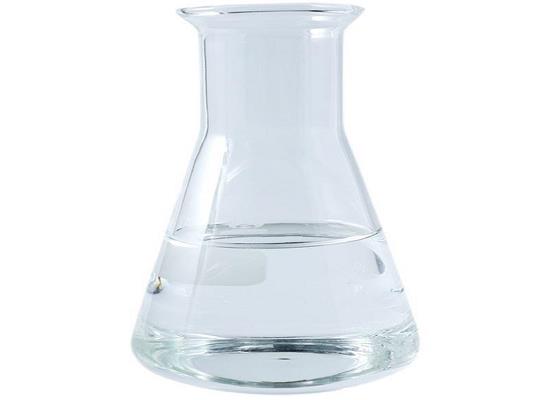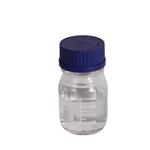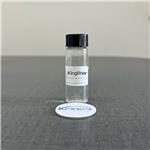1-Decanol: Applications in Hydroxyl-Functionalized Stilbenoid Molecular Sieves and its Production Method
Jun 28,2024
General Description
1-Decanol is a key component in the creation of hydroxyl-functionalized stilbenoid molecular sieves, aiding in their self-assembly at the liquid/solid interface. This process involves 1-decanol forming a stable monolayer to facilitate the arrangement of molecular tectons, resulting in sieves with desired porosity and selectivity. The hydroxyl groups in these sieves enhance their chemical properties for applications in filtering and catalysis. Additionally, the production of 1-decanol using genetically modified Yarrowia lipolytica shows promise, with enhanced yields achieved through metabolic engineering, offering a sustainable and efficient method for producing this versatile alcohol.

Figure 1. 1-Decanol
Applications in Hydroxyl-Functionalized Stilbenoid Molecular Sieves
1-Decanol plays a crucial role in the formation of hydroxyl-functionalized stilbenoid molecular sieves, a process that occurs at the liquid/solid interface. This application of 1-decanol is particularly significant in the field of materials science, where it serves as both a solvent and a structural component in the self-assembly of molecular structures.
Role in Monolayer Formation
The use of 1-decanol in this context involves its formation into a monolayer, which acts as a foundational layer for the self-assembly of specific molecular tectons designed to form molecular sieves. These sieves are engineered through a self-assembly process that capitalizes on the unique properties of 1-decanol to enhance molecule-molecule and molecule-substrate interactions. The presence of 1-decanol stabilizes the assembly process, ensuring that the resultant molecular sieves possess the desired porosity and chemical selectivity. In experiments, 1-decanol has been shown to facilitate the assembly of stilbenoid structures by forming a stable monolayer on which the molecular sieves develop. This setup is beneficial for achieving the necessary orientation and packing of tectons, which are crucial for forming functionalized sieves with hydroxyl groups.
Contribution to Molecular Sieve Stability
These hydroxyl groups contribute to the chemical selectivity of the sieves, making them suitable for various applications in filtering and catalysis. Furthermore, the choice of 1-decanol as a solvent in these processes is instrumental in enhancing the self-assembly of hydroxylated stilbenoid molecular sieves. The ability of 1-decanol to interact effectively with both polar and non-polar components aids in the precise construction of these complex structures. This illustrates the versatility of 1-decanol in facilitating not only the solvent role but also playing a part in the structural framework of advanced material designs. Such applications highlight the importance of 1-decanol in cutting-edge materials science research, underscoring its utility beyond conventional uses in industry. 1
Production Method
Biological Production Using Engineered Yeast
The production of 1-decanol, a medium-chain alcohol, is gaining interest due to its wide application in the production of solvents, surfactants, lubricants, waxes, creams, and cosmetics. This alcohol can be synthesized through various chemical processes, but biological production using engineered microorganisms offers a sustainable alternative. A notable advancement in this field is the metabolic engineering of Yarrowia lipolytica, an oleaginous yeast, to produce 1-decanol from glucose. In a recent study, strains of Y. lipolytica were genetically modified to enhance their capacity for 1-decanol production. This was achieved by expressing a fatty acyl-CoA reductase gene from Arabidopsis thaliana. This enzyme plays a crucial role in the conversion of medium-chain fatty acids, which are themselves produced by the yeast, into 1-decanol. Initially, the production levels of 1-decanol were disappointingly low, with titers less than 10 mg/mL. This low yield was attributed primarily to the catabolism of the product by the yeast itself.
Genetic Modifications for Enhanced 1-Decanol Yield
To overcome this limitation, researchers focused on genetic modifications that could reduce the breakdown of 1-decanol within the yeast cells. A significant breakthrough was achieved by deleting the gene responsible for the major peroxisome assembly factor, Pex10. This deletion led to a marked increase in 1-decanol production, with titers exceeding 500 mg/L. Interestingly, this genetic modification also increased the production of other fatty alcohols such as 1-hexadecanol and 1-octadecanol, although the increases were not as pronounced as those observed for 1-decanol. These findings underscore the potential of using Y. lipolytica as a biofactory for 1-decanol and similar products. By manipulating the metabolic pathways and genetic makeup of this yeast, it is possible to significantly enhance the yield of 1-decanol. This approach not only provides a more environmentally friendly method of producing 1-decanol but also paves the way for the commercial exploitation of microbially produced fatty alcohols. The study demonstrates that metabolic engineering can effectively convert simple sugars into valuable chemicals like 1-decanol, offering a viable alternative to traditional chemical synthesis methods. 2
Reference
1. Bellec A, Arrigoni C, Douillard L, et al. Formation of hydroxyl-functionalized stilbenoid molecular sieves at the liquid/solid interface on top of a 1-decanol monolayer. Nanotechnology. 2014; 25(43): 435604.
2. Rutter CD, Rao CV. Production of 1-decanol by metabolically engineered Yarrowia lipolytica. Metab Eng. 2016; 38: 139-147.
- Related articles
- Related Qustion
Losartan Potassium effectively reduces blood pressure by blocking angiotensin II receptors, with its active metabolite enhancing this effect; minimal interactions and stable pharmacokinetics noted.....
Jun 28,2024APIGlycine, the smallest amino acid, is essential for protein synthesis, pain modulation, and neurotransmission, playing diverse roles in cellular activities.....
Jun 28,2024API1-Decanol
112-30-1You may like
- Decyl alcohol
-

- $5.00 / 1KG
- 2024-07-02
- CAS:112-30-1
- Min. Order: 1KG
- Purity: 99%
- Supply Ability: 20TONS
- 1-Decanol
-

- $10.00/ kg
- 2024-06-28
- CAS:112-30-1
- Min. Order: 1kg
- Purity: 99.99%
- Supply Ability: 10 tons
- 1-Decanol
-

- $0.00 / 1kg
- 2024-06-24
- CAS:112-30-1
- Min. Order: 1kg
- Purity: 0.99
- Supply Ability: 50000kg




